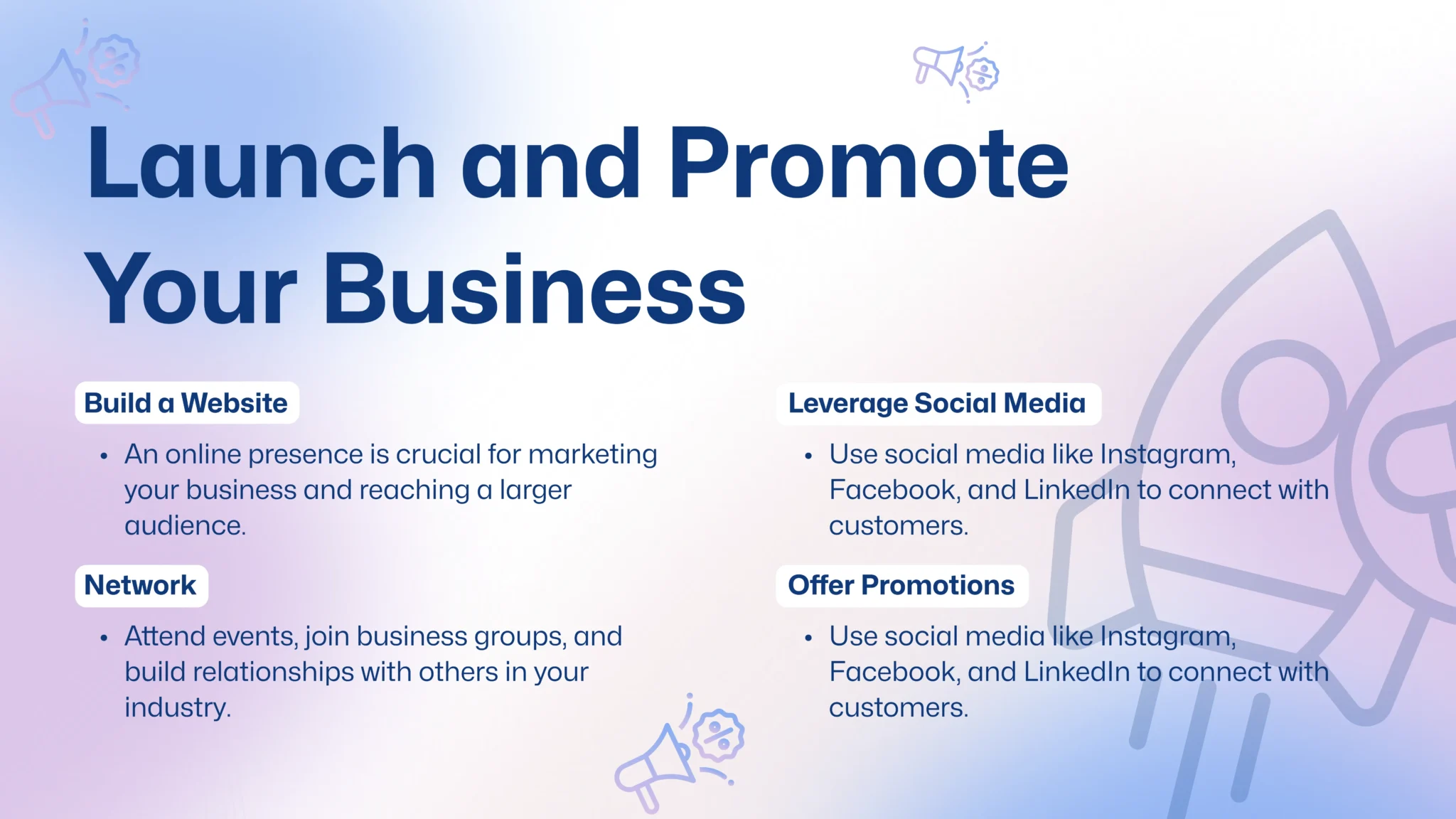Starting a business is an exciting yet challenging journey. Whether you’re asking yourself, “How to start a business?” or wondering, “How to start a small business?” the path to entrepreneurship can initially seem daunting. However, breaking it down into manageable steps makes the process clearer and more achievable. Whether you want to start your own business or plan on starting a business in retirement, the right guidance can make a difference.
This blog will walk you through 7 simple yet essential steps to start a business and build a sustainable business that can thrive in today’s competitive market. So, let’s dive right in!
Step 1: Find Your Business Idea
The journey to starting a business begins with a clear and solid idea. To get started, you’ll want to explore how to make your own business successful. Ask yourself some critical questions like:
- What are you passionate about?
- What problems can you solve for people?
- How can you make an existing product or service better?
This is where the magic of entrepreneurship begins. It’s vital to have a clear vision of what you’re offering and how it will stand out in the marketplace. If you’re wondering how to start a small business idea, think about a niche you could fill or a problem you can solve for a specific audience. Keep in mind that even starting a retirement business is an excellent opportunity to bring your long-held passions into reality.
Don’t be afraid to think creatively and explore various startup growth strategies that could set you apart. Whether you’re interested in creating an online business or a brick-and-mortar store, refining your idea and understanding your market’s needs is key.
Step 2: Understand Your Market
Before you dive into the practical aspects of how to start a business, you need to understand your target audience. Who are they, what do they want, and how do they make purchasing decisions? This step is crucial in ensuring your business has a competitive edge. The better you understand the market, the easier it will be to build a successful business.
Start by conducting market research. Research competitors, potential customers, and industry trends to get a clearer idea of what you’re up against. You’ll want to know the best business to start based on demand in the market.
For example, if you’re thinking of starting a business in retirement, look for market gaps that align with your interests and experiences. There are plenty of niche markets that you can tap into—whether it’s consulting, coaching, or creating products for other retirees.
Additionally, if you plan to set up an office, this is the time to determine the best location and resources you’ll need. Understanding your target market helps shape not only your offerings but also your business’s location, pricing, and strategy.
Step 3: Write a Simple Business Plan
Once you’ve nailed down your business idea and market research, it’s time to turn your vision into a plan. A business plan is one of the most crucial elements of how to start a successful business. It doesn’t need to be long or overly complicated—just clear and concise. Here are the key sections to include:
- Executive Summary: A brief overview of your business and mission.
- Business Description: Details about your product or service, target market, and value proposition.
- Market Research: Insights into your industry, competitors, and customers.
- Marketing & Sales Strategy: How you’ll attract and retain customers.
- Financial Plan: A budget, revenue projections, and how you’ll fund your business.
Your business plan also serves as a roadmap for how to build a business from scratch. As you grow, you’ll refer back to your plan to make sure you’re on track. It’s important to know the best way to start a business and ensure you have a structured plan that addresses challenges as they arise.
Additionally, if you’re wondering how to start a company, this business plan will guide you in the right direction. And for those who are starting a business in retirement, a business plan can help ensure you balance the demands of running a business with your lifestyle.
Step 4: Choose the Right Business Structure
When you’re figuring out how to start a small business, choosing the right legal structure is critical. It determines your business’s tax liabilities, personal liability, and even funding options. The most common business structures include:
- Sole Proprietorship: Simple, where you own and operate the business.
- Partnership: Shared responsibility between two or more people.
- Limited Liability Company (LLC): Protects your assets from business debts and liabilities.
- Corporation: A separate legal entity from its owners, offering the highest level of protection but more administrative responsibilities.
If you’re thinking about how to start a business, picking the right structure is a big step. It matters for business insurance, taxes, and legal rules. When you plan how to start a company, your choice of structure affects how you raise money or get a loan. It also changes how you run things each day. Choosing the right will help if you want to start a small business or even build a business that grows over time.
Step 5: Register Your Business
Now that you have your business idea, plan, and structure, it’s time to make it official. One of the first steps in how to start a business is registering your business with the appropriate government authorities. The registration process varies depending on your location, but here are some common steps:
- Choose a Business Name: Make sure your business name is unique and reflects your brand.
- Register for Taxes: Get an Employer Identification Number (EIN) or a similar tax ID number for your business.
- Obtain Licenses and Permits: Depending on your location and industry, you might need specific licenses or permits.
- Open a Business Bank Account: To keep your personal and business finances separate.
For those starting a business in retirement, making sure all your paperwork is correct and up to date will save you time and stress later on.
Step 6: Organise Your Finances
Whether you’re starting a small business or wondering how to make your own business, the financial organisation is crucial. As a business owner, you’ll need to keep track of income and expenses, file taxes, and growth plan. Here are a few financial tips:
- Track Your Finances: Use accounting software or hire a professional to keep track of your business finances.
- Set a Budget: Create a financial plan that includes startup costs and monthly expenses.
- Prepare for Taxes: Understand your tax obligations and set aside money for them regularly.
Having a clear grasp on your finances will help you avoid financial mismanagement and ensure that your business is on the path to success. This is especially important when considering startup growth strategies and scaling your business.
Step 7: Launch and Promote Your Business
The final step in how to start a business is to launch and promote your brand. After all, you can’t expect your business to succeed if you don’t put it out there for people to see. Here’s how you can do it:

- Build a Website: An online presence is crucial for marketing your business and reaching a larger audience.
- Leverage Social Media: Use social media like Instagram, Facebook, and LinkedIn to connect with customers.
- Network: Attend events, join business groups, and build relationships with others in your industry.
- Offer Promotions: Attract customers with discounts or special offers.
In the early stages of building a business, your goal is to create buzz and attract your first set of customers. If you’re starting a business in retirement, word-of-mouth and personal networks can work well for marketing.
Final Thoughts
Starting a business is an exciting challenge, but with the right steps, anyone can turn their idea into a successful company. Whether you want to start a business, launch a small business, or start one in retirement, these 7 steps will guide you to success.
Keep in mind, every business journey is unique. However, by following these steps and focusing on building your business, you’ll be ready to handle challenges and grow. Stay focused, be patient, and always be ready to learn from both your successes and mistakes.
Finguru India is here to help!
📞 Book a Consultation with Our Expert!
📞 Call Us: +91-9999127022
🌐 Visit: www.Finguruindia.com


